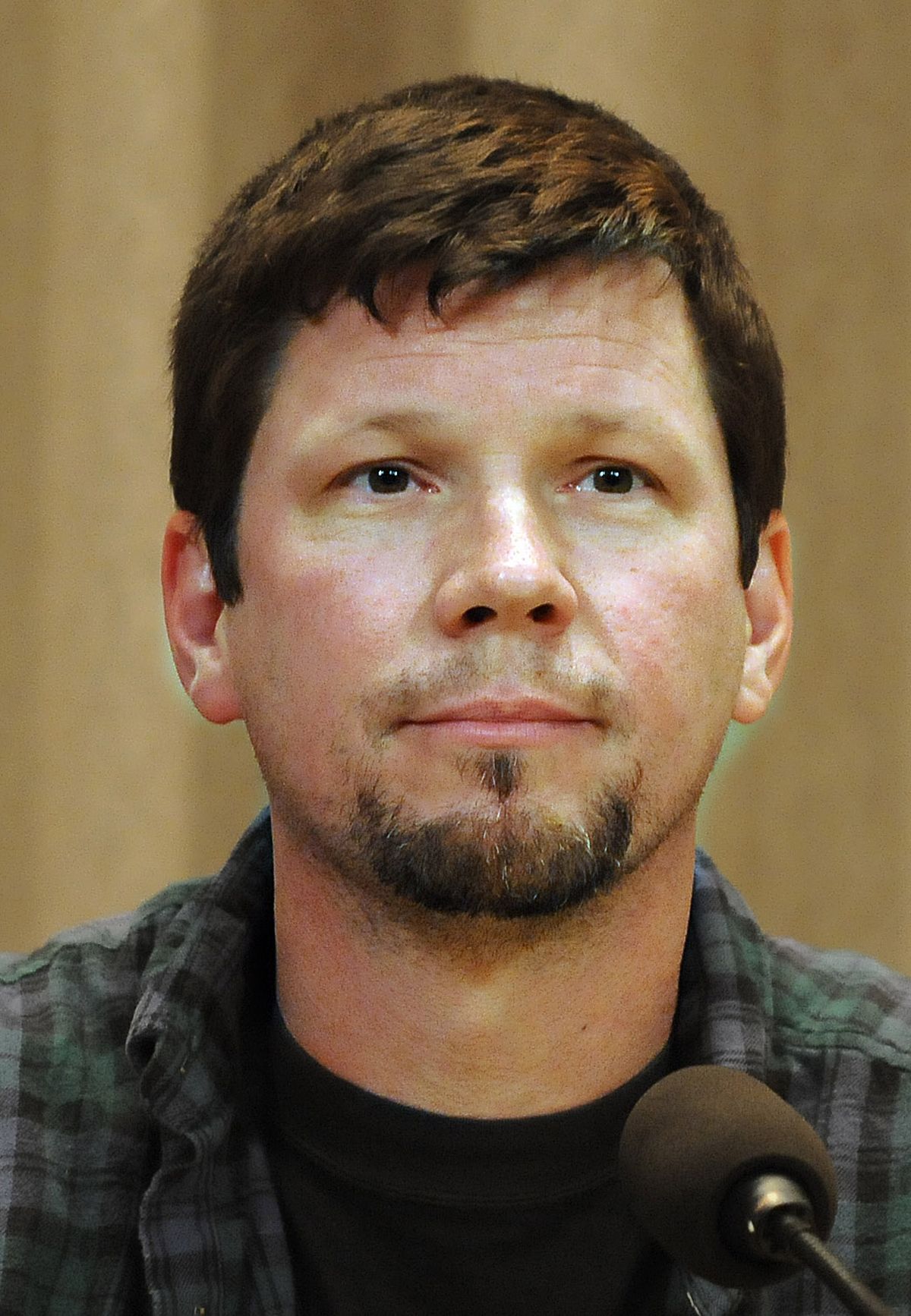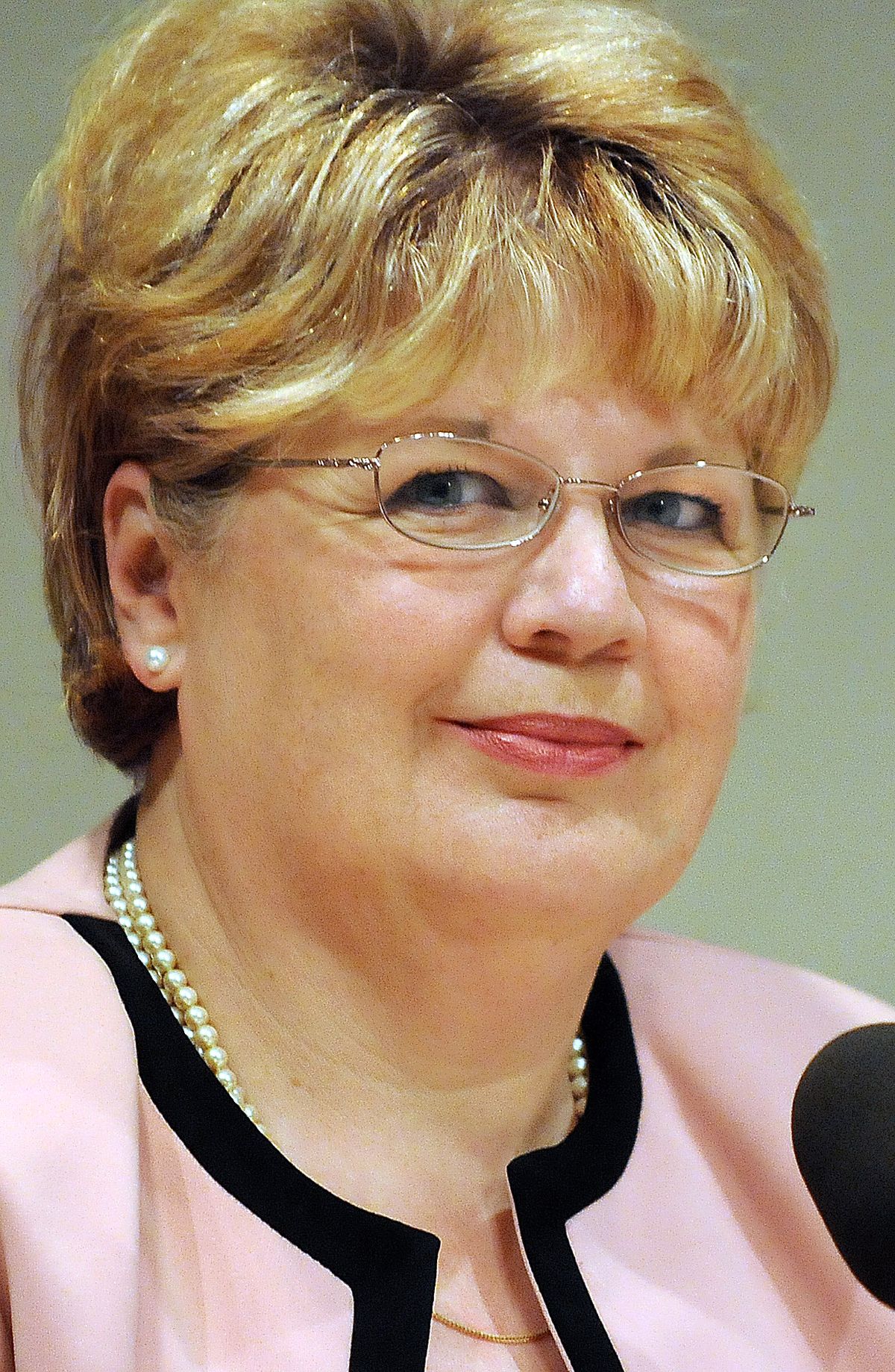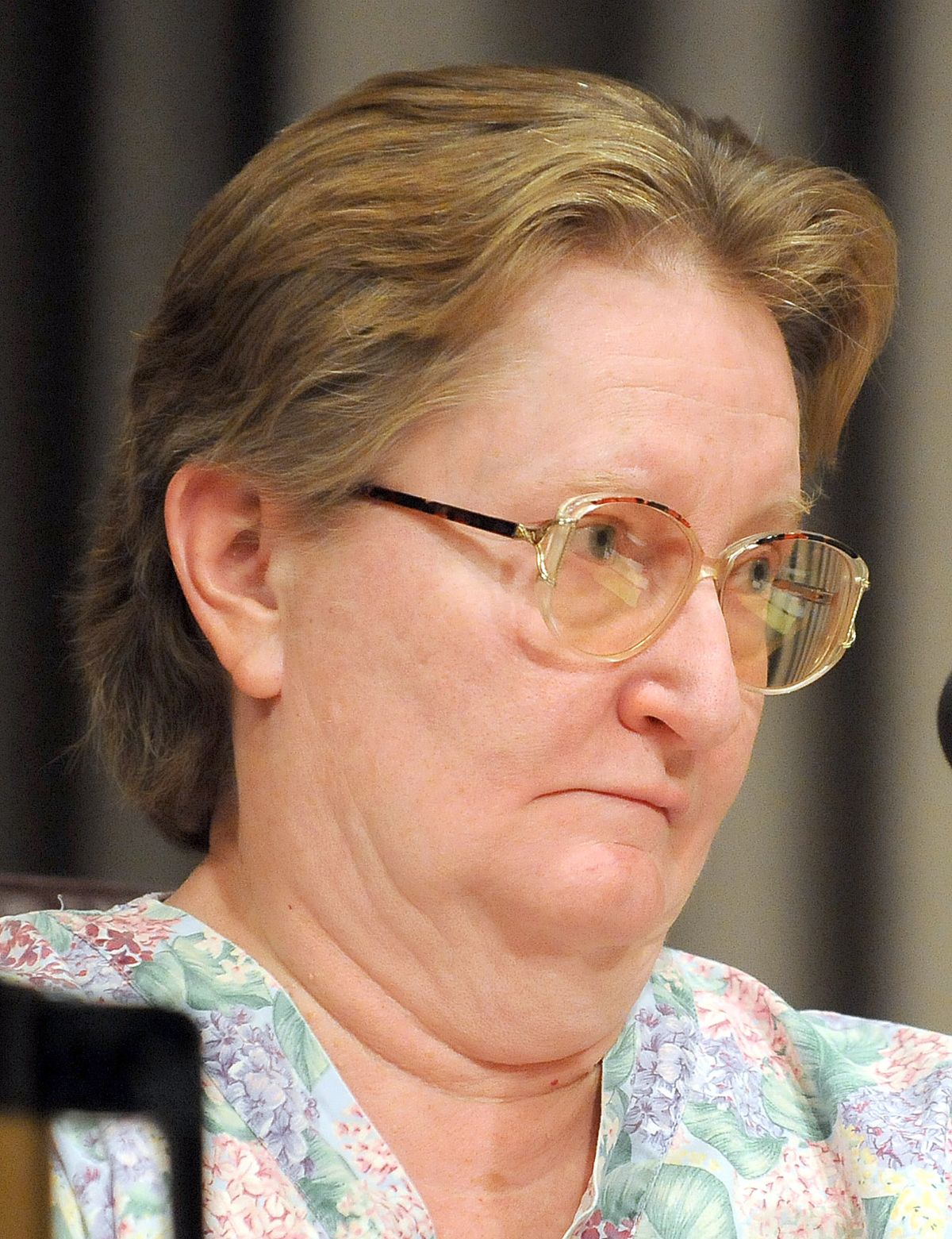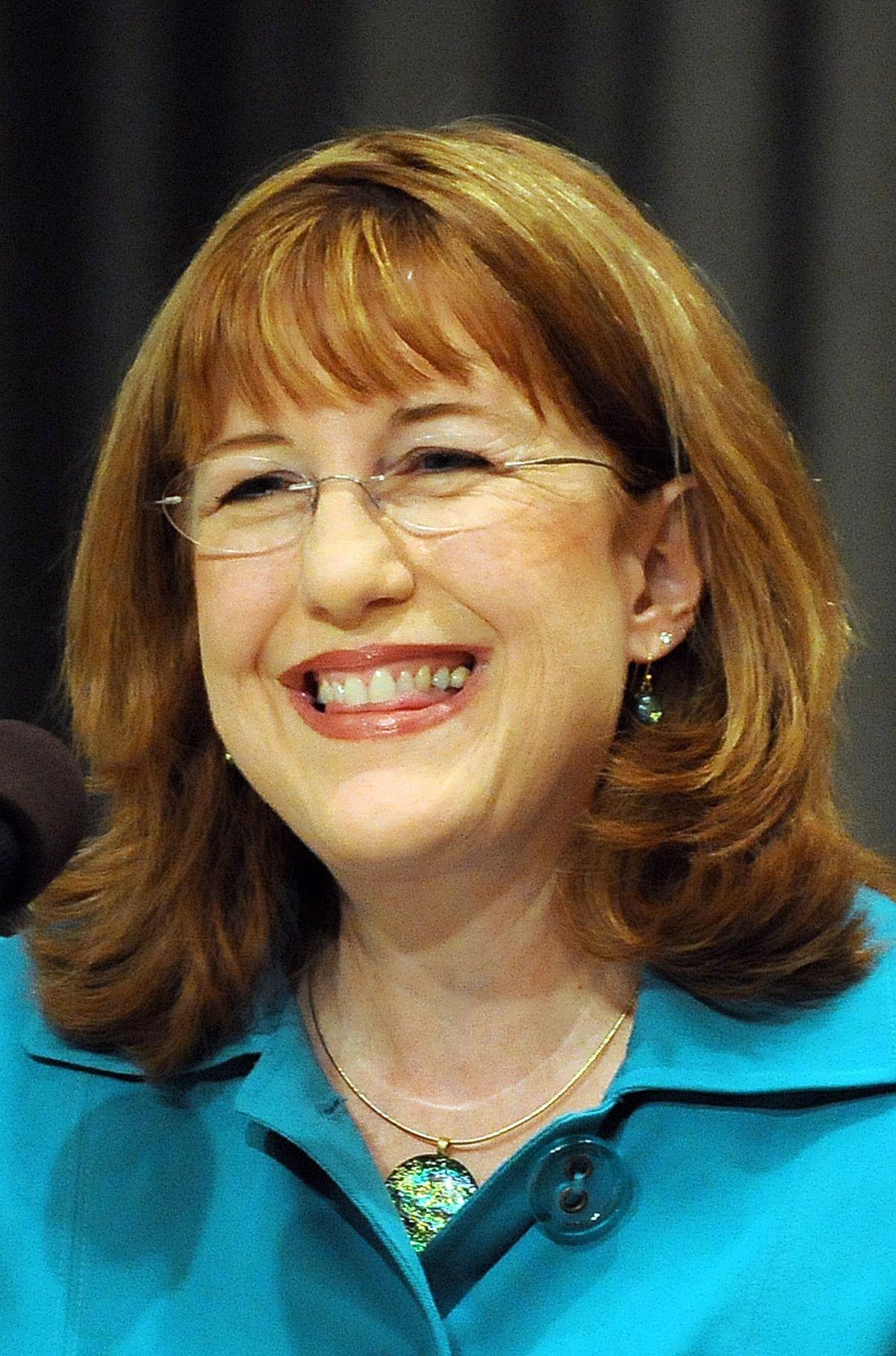Union contracts contentious issue in six-way council race
Candidates argue over worker pay, City Council compensation
Kearney (Christopher Anderson / The Spokesman-Review)
It’s not easy to goad Nancy McLaughlin into a fight.
Even during the most passionate Spokane City Council debates, she’s among the least likely of the seven members to shout, go on the attack or personally criticize her colleagues or audience members.
That doesn’t mean she won’t speak her mind, however.
McLaughlin, 51, is the only City Council member who identifies herself as a conservative on social as well as fiscal matters, and she sometimes is on the losing side.
She voted against the purchase of a $3.6 million heating and air conditioning system for City Hall, questioning the price, which was about one-third the assessed value of the building.
She voted against the acceptance of the mayor’s Sustainability Task Force report, citing concerns that its nonbinding suggestions could be too costly.
And, she voted against two employee contracts that she says the city can’t afford.
That last vote has stirred criticism from unions and one of her opponents in the primary election, who point to her helping create a salary commission that raised City Council pay to $30,000 a year, from $18,000.
McLaughlin notes that City Council pay hadn’t risen in almost 20 years and says 97 percent of city workers make at least as much as council members do.
The debate about employee pay and council compensation has become one of the more heated issues in the race.
In the battle for her seat, McLaughlin faces five challengers. They are:
• Karen Kearney, 57, a former member of Spokane’s Human Services Advisory Board, who says City Council members haven’t been responsive to the people of the district. Kearney, a former regional operations manager at Capital Savings Bank in Seattle, worked at banks for more than 20 years before moving back to Spokane in 1997.
• Barbara Lampert, 63, a retired nurse’s aide who has run for office every year for more than a decade. She says the city should hire an additional 100 police officers by eliminating middle management positions. She also wants the city to install bus benches at every bus stop and outlaw vicious dogs.
• Victor D. Noder, 49, a Navy veteran who used to remodel homes. He says he’s trying to build and sell Arts and Crafts-style furniture out of items he gets from the dump. He argues that the council isn’t getting along and needs to act as a team. He believes there is state stimulus money available to help balance the city’s budget.
• Christopher P. Stevens, 36, who is the co-owner of a medical marijuana dispensary called Change. He did not respond to requests for interviews last week. He has missed deadlines to file required paperwork on his candidacy with the state Public Disclosure Commission.
• John Waite, 45, who owns Merlin’s, a downtown comic book, game and science fiction store. He says government is “completely broken” and adds that his beliefs, which he says are socially progressive and fiscally conservative, are the best fit for the district.
McLaughlin, who with her husband owns D-Mac Construction, a kitchen and bath remodeling company, notes that in the past four years the city has shored up its reserves and greatly improved its bond rating. Among her accomplishments, McLaughlin sponsored an ordinance that creates seats on many city boards for high school students.
“It’s important to help train young leaders,” she said.
Kearney is critical of McLaughlin’s vote against union contracts. One of those contracts was for the largest city union and included 5 percent annual pay increases and retirement concessions.
“You can’t vote yourself a raise and deny other people a raise,” Kearney said.
McLaughlin said council pay was low enough that it made it difficult for most citizens to run for office.
Although the City Council votes on union contracts, Kearney says she would not oppose contracts that had been agreed to by unions and the mayor’s office.
McLaughlin responds that it would be irresponsible for a council member to vote for an employee contract that adds millions to the city budget if it’s clear there isn’t revenue to cover it. She has said that a recent demand from city administrators for workers to make concessions or face layoffs validates her vote.
Waite agrees with McLaughlin that the city can’t afford the increases that officials have approved in recent contracts. He said benefits should more closely resemble what’s paid in the private sector.
“I don’t want to see any more services cut and I don’t want to see any more jobs cut,” Waite said. “If we don’t fix our budget, cities like us could be heading into bankruptcy.”
With issues such as domestic partner benefits and the environment as potential wedges, Waite believes the district is ready to embrace a political moderate like him. While the northern part of the district – Indian Trail and Five Mile Prairie – leans Republican, 54 percent of voters in the district voted for Barack Obama last year.
City policy allows unions to bargain for benefits for workers’ unmarried partners. Inclusion of that right was one reason McLaughlin cited when she cast her vote against the contract for the city’s largest union last year. If re-elected, McLaughlin said she will continue to vote against union contracts that include such benefits.
Kearney says she wouldn’t vote against a contract that had the benefits if negotiated by the mayor’s office, but she says she generally opposes granting them.
Waite and Lampert say the city should offer benefits to unmarried partners.
“People that have domestic partners should be treated exactly equal with everyone else that chooses to get married,” Waite said.
The candidates offer differing views on the future of light rail in the city. Kearney opposes it. Waite and Noder support it. McLaughlin, who serves on the Spokane Transit Authority board, says there should be continued exploration of light rail or other systems, such as a bus rapid transit.
“We are not too early to be planning and preserving that right-of-way,” McLaughlin said.
They also disagree on the powers of the city’s new police ombudsman. McLaughlin, Waite and Noder say the position should have investigatory power. Some residents have said they want an ombudsman who has authority to conduct independent investigations of police misconduct.
Kearney supports the creation of the office, but agrees with the city administration’s “wait and see” position on pushing the union to add investigatory powers to the job. Lampert says the job is a waste of taxpayer money.
None of the candidates offered criticism of police Chief Anne Kirkpatrick. Kearney is the only candidate in the race who criticizes fire Chief Bobby Williams, who has had a rocky relationship with the city’s firefighters’ union for years. She points to votes of no confidence from the group.
“The bottom line is I think that it’s time for Chief Williams to retire,” said Kearney, who received the endorsement of the firefighters’ union. “He’s been here long enough, and it’s time for him to move on.”





